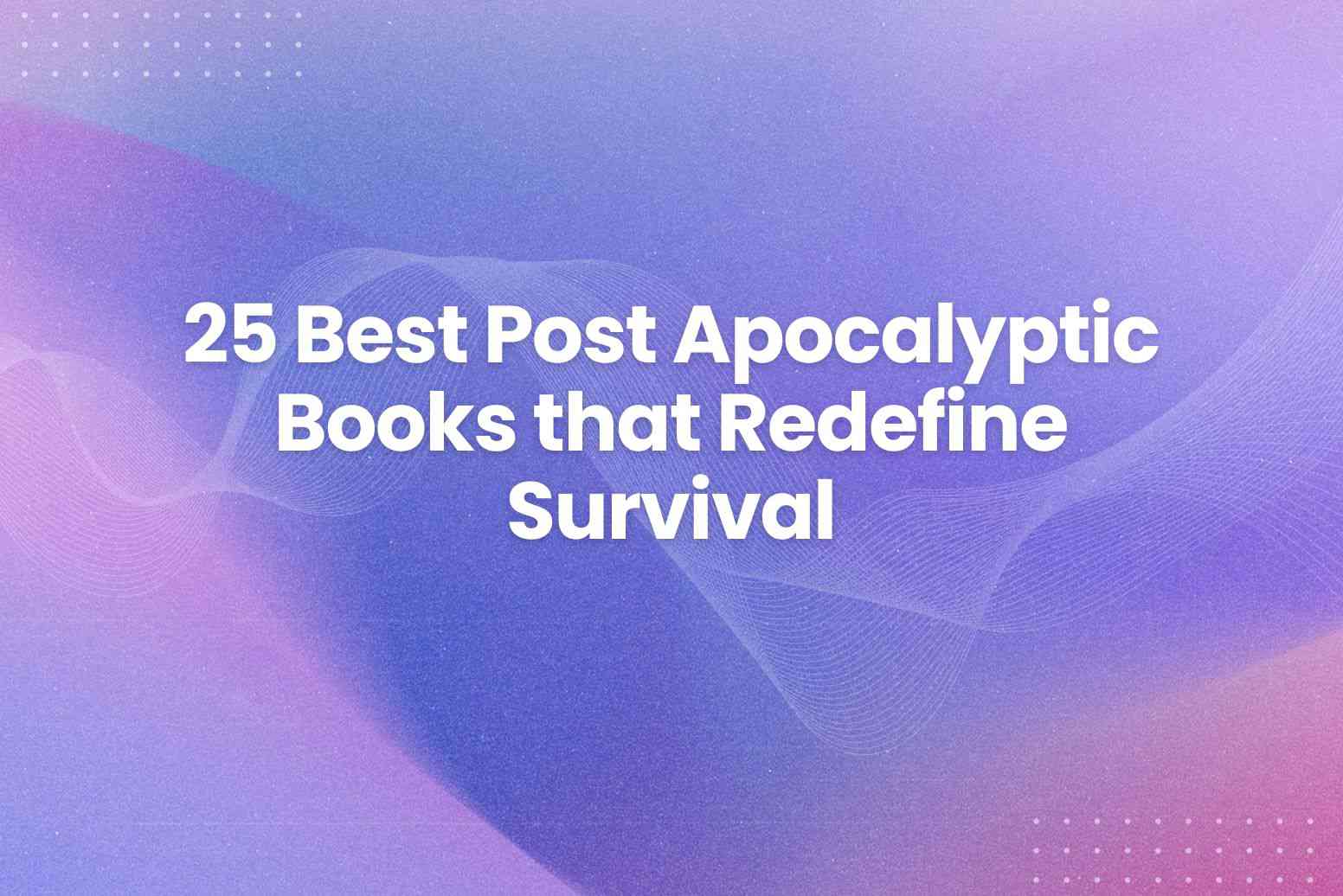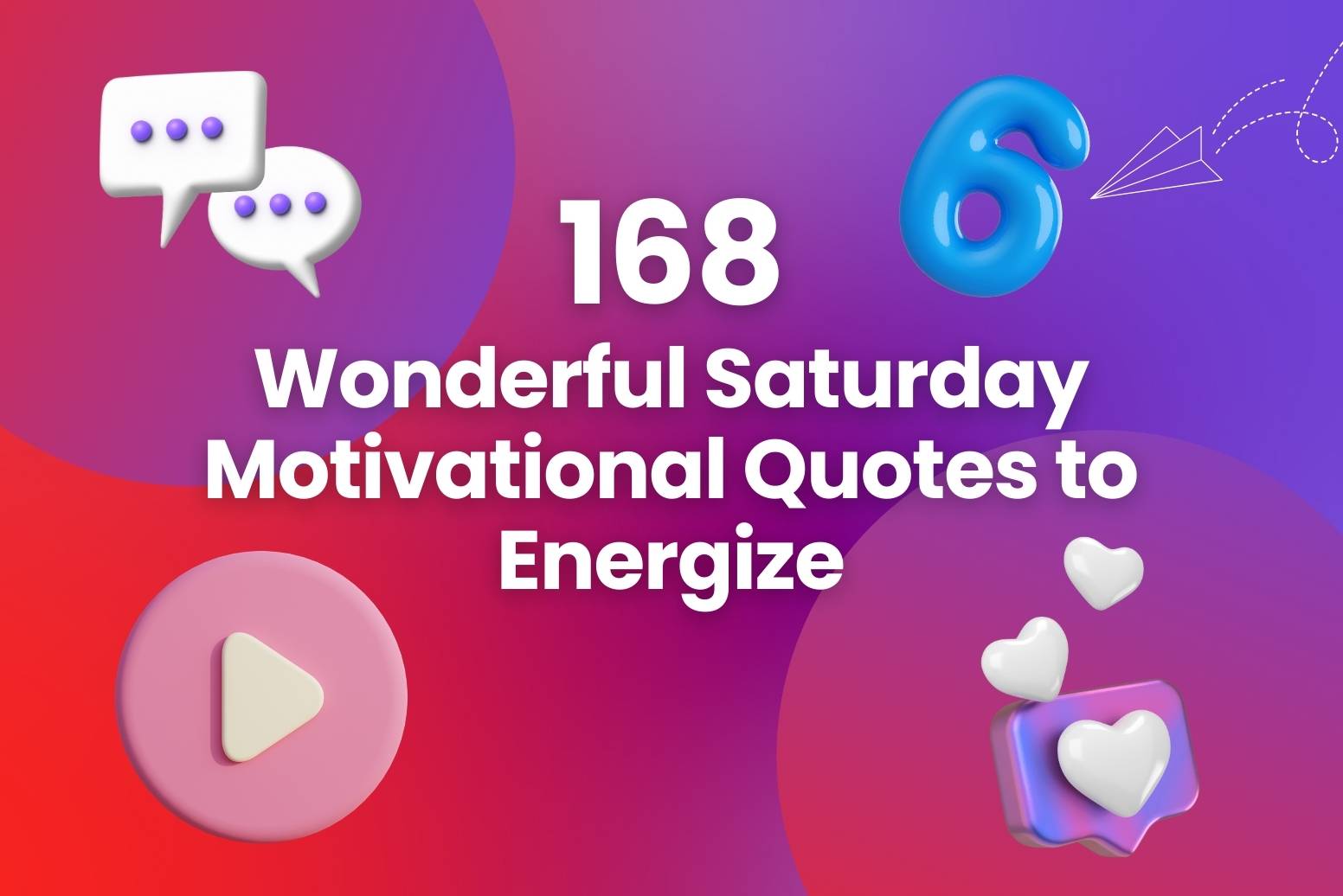In grim futures, post apocalyptic books reveal society’s deepest fears. They occasionally ooze strange optimism amid despair. Disasters like climate change and nuclear war loom large. Reading about already ruined worlds can feel comforting. Experience the end of the world safely from your couch. Here are the best post-apocalyptic books to explore despair and hope.
If you’d like to discuss post-apocalyptic books further or have questions about specific titles, themes, or recommendations, feel free to call on Arvin. Arvin is here to help you explore this fascinating genre and provide insights that enrich your reading experience! Also, Arvin can help you summarize the main ideas of any book you like.
Also read: 10 Best Fantasy Books of All Time You Can’t Miss
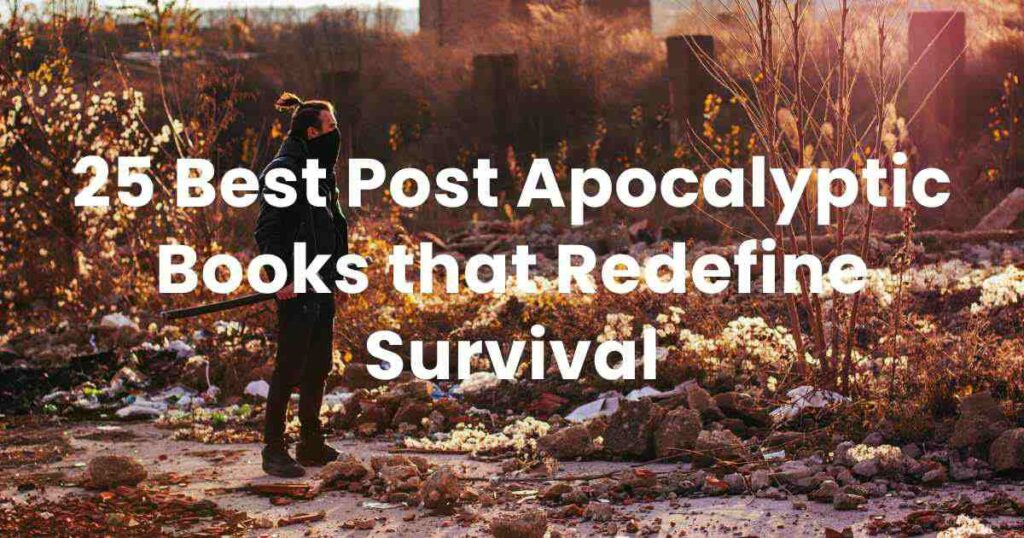
The Road by Cormac McCarthy
This Pulitzer Prize-winning novel follows a father and his young son as they travel through a bleak, post-apocalyptic landscape. Humanity has been devastated by an unspecified disaster, leaving a wasteland filled with ash and danger. Their journey is one of survival and a poignant exploration of love, hope, and the meaning of humanity in the face of despair.
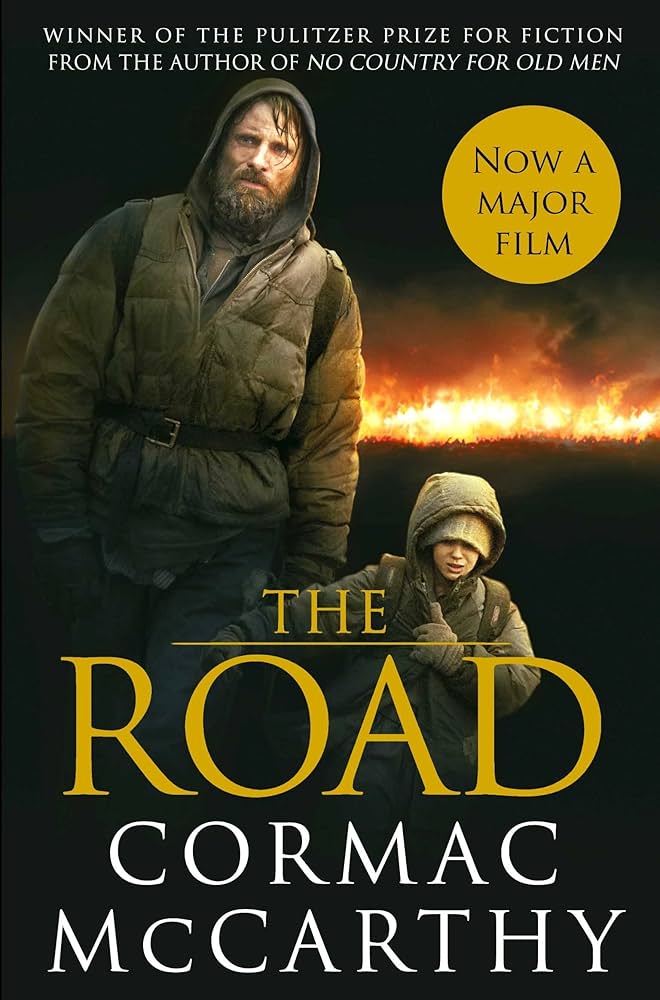
Station Eleven by Emily St. John Mandel
After a swift and deadly pandemic decimates the global population, the novel shifts between past and present. It explores various characters’ lives before and after the collapse. The story emphasizes the resilience of art and human connection. Central to this theme is the Traveling Symphony, a group of actors and musicians. They perform Shakespeare in the remnants of civilization, showcasing the enduring power of creativity and community.
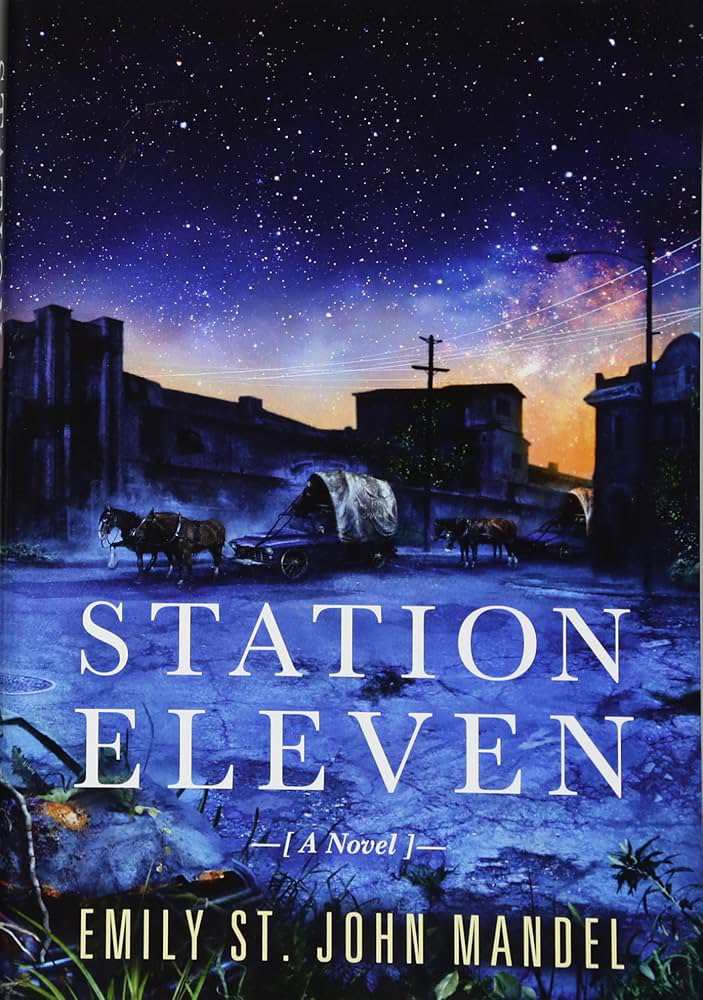
The Stand by Stephen King
In this epic novel, a lethal strain of influenza wipes out 99% of the world’s population. The survivors are drawn to two contrasting communities. One is led by benevolent Mother Abagail and the other by the malevolent Randall Flagg. This confrontation between good and evil unfolds in a world struggling to reclaim a semblance of order.
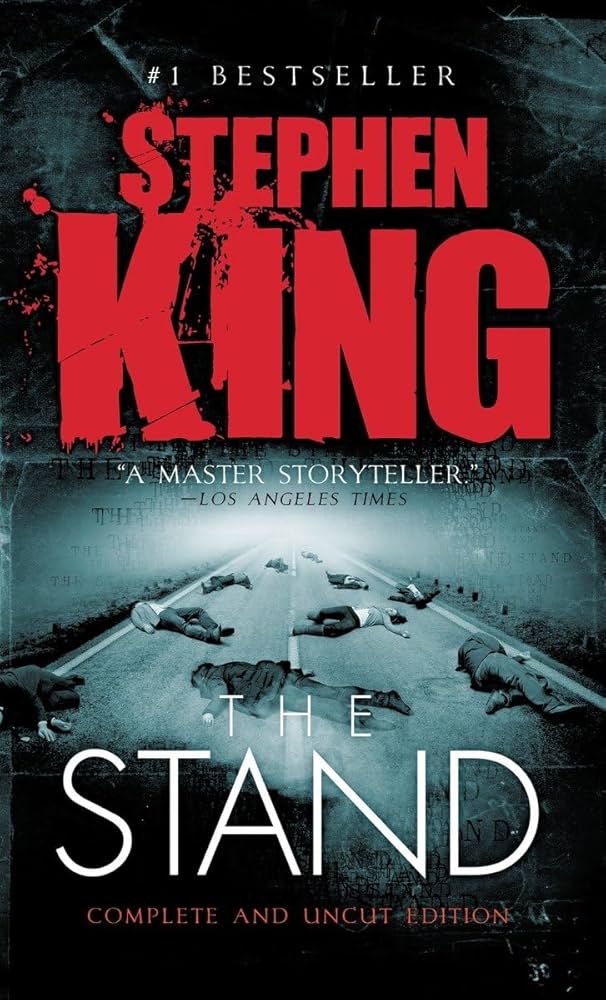
The Children of Men by P.D. James
Imagine a world where the baby section in supermarkets is as redundant as a comb in a bald man’s pocket. P.D. James immerses us in a disturbing reality where human fertility has vanished. The last generation born is now grown, sparking global despair and a strange nostalgia for diaper ads. The narrative follows a disillusioned bureaucrat caught in a turbulent movement. He strives to overthrow a despotic government while facing humanity’s existential dread. The weight of impending extinction lingers throughout, challenging his belief in hope and change.
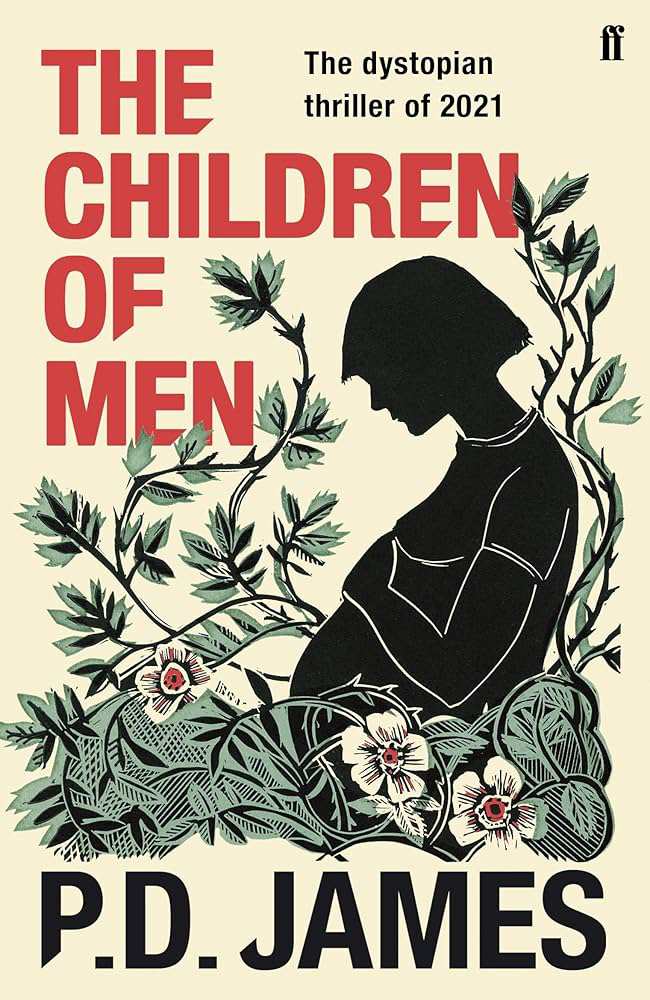
The Walking Dead by Robert Kirkman
In Kirkman’s world, zombies are as common as bad Wi-Fi signals, and just as annoying. This gripping graphic novel series tracks a band of survivors who learn the hard way that the only thing worse than a zombie with a bad attitude is pretty much any living human with power. It’s a narrative feast of blood, guts, and the human condition, served up with a side of “who’s going to betray the group next?”
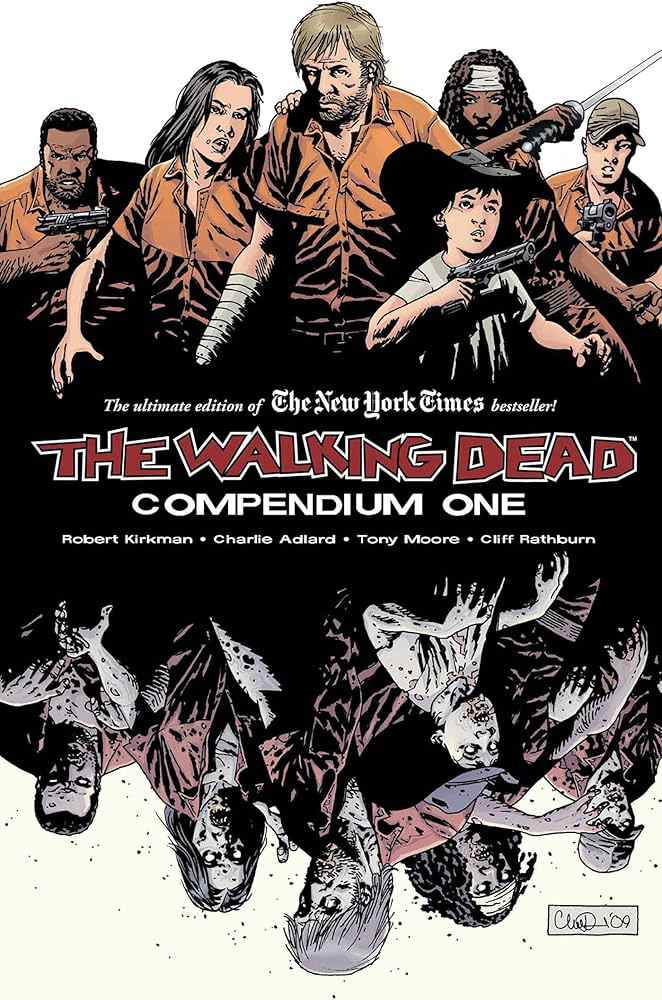
The Book of the Unnamed Midwife by Meg Elison
After a plague leaves the population thinner than a supermodel on a juice cleanse, a young woman journeys through barren America in “The Road to Nowhere.” Armed only with her wits, she seeks to avoid becoming a disease statistic. Along the way, she encounters enclaves of oddballs and outcasts. These characters are redefining what it means to inhabit a ‘strange new world.’ Her quest for survival unfolds amid a backdrop of unsettling landscapes and quirky, resilient communities.
This journey isn’t just about survival but also about finding connection in the most disconnected of worlds.
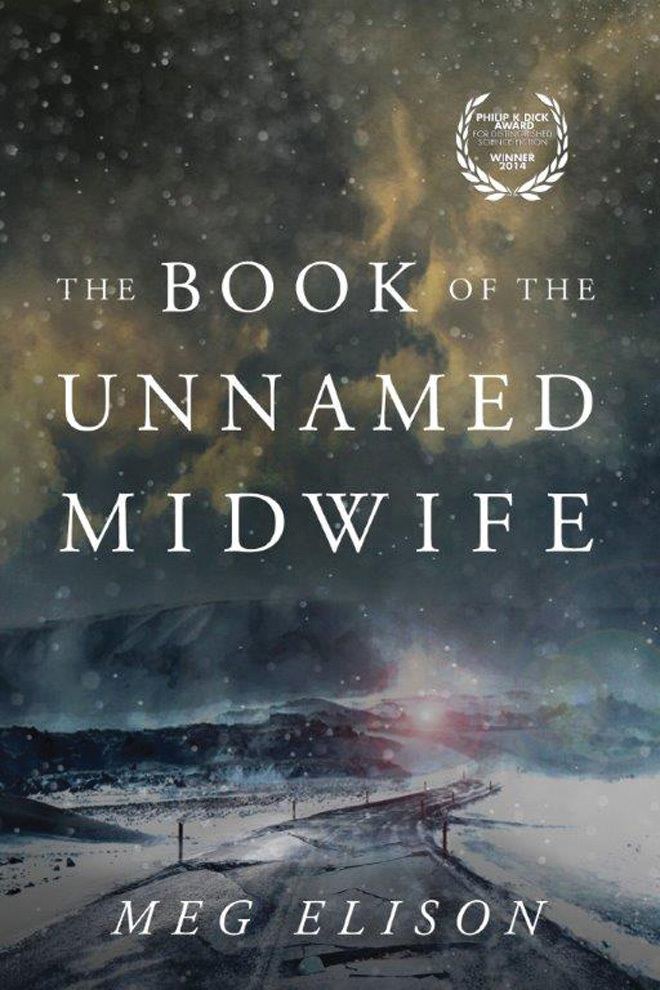
Earth Abides by George R. Stewart
This classic novel tells the story of Isherwood Williams, who survives a global pandemic that wipes out most of humanity. As he confronts his new reality, Isherwood observes the decline of civilization around him. He struggles to comprehend what it means to be human. In a world where society has disintegrated, nature reclaims its dominance.
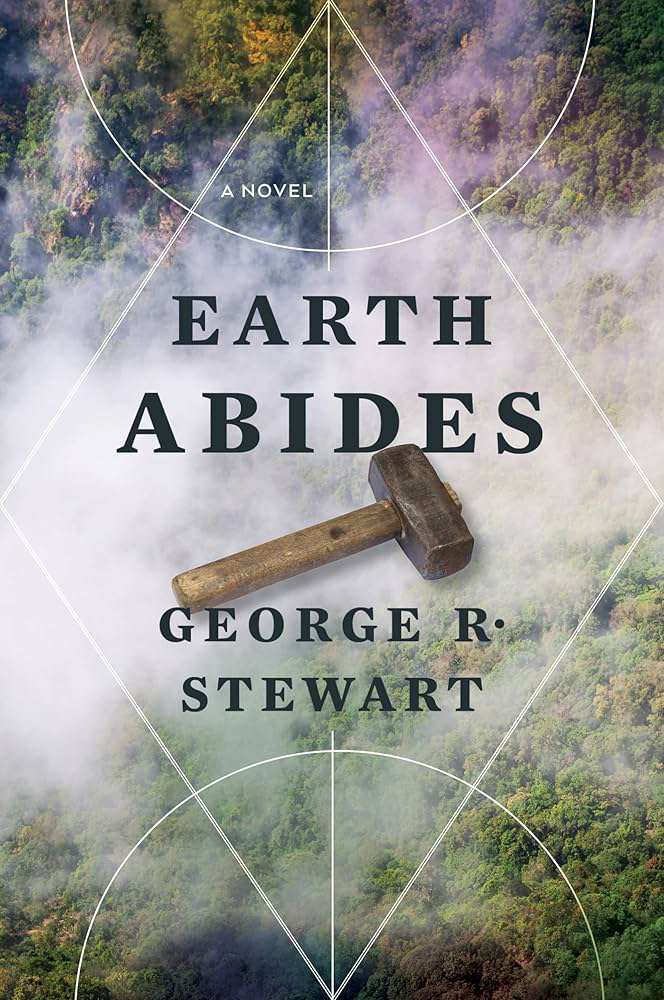
The Dog Stars by Peter Heller
In this lyrical and poignant narrative, Hig, a pilot and survivor of a flu pandemic, lives in an abandoned hangar with his dog and a gun-toting neighbor. He grapples with loneliness and loss while flying over the desolate landscape and clinging to hope. The book beautifully explores themes of survival, resilience, and the enduring nature of love.
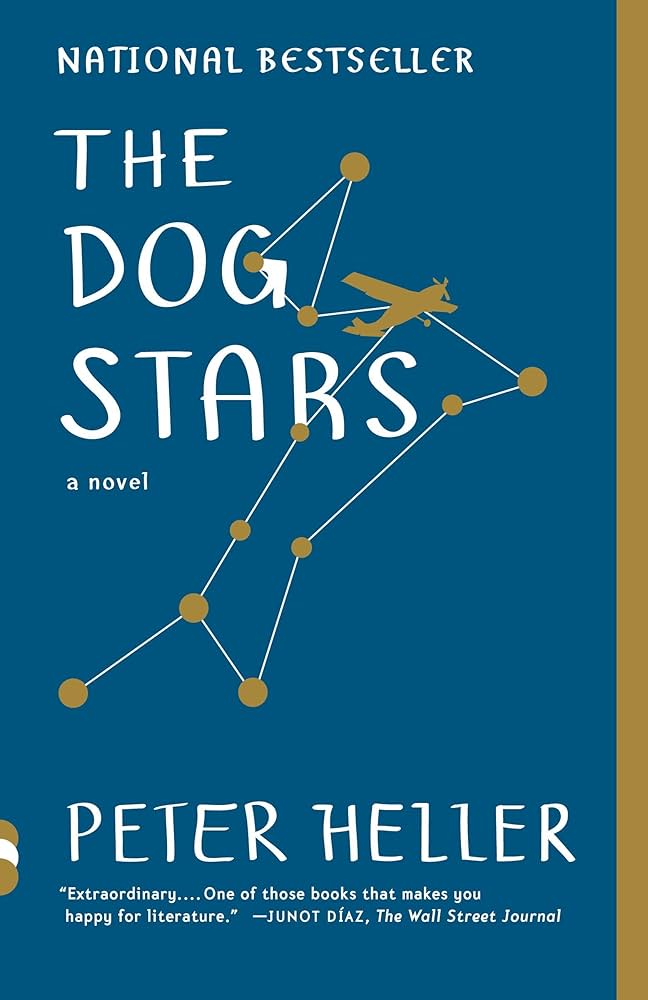
The Water Knife by Paolo Bacigalupi
Set in a near-future America ravaged by climate change and water scarcity, the novel follows Angel Velasquez. He is a “water knife” who assists the powerful in securing water rights by any brutal means necessary. As societal collapse intensifies, the narrative explores themes of survival and governance. It highlights the devastating impact of environmental crises on human lives. Angel’s journey sheds light on the moral dilemmas faced in a world where water has become a precious commodity.
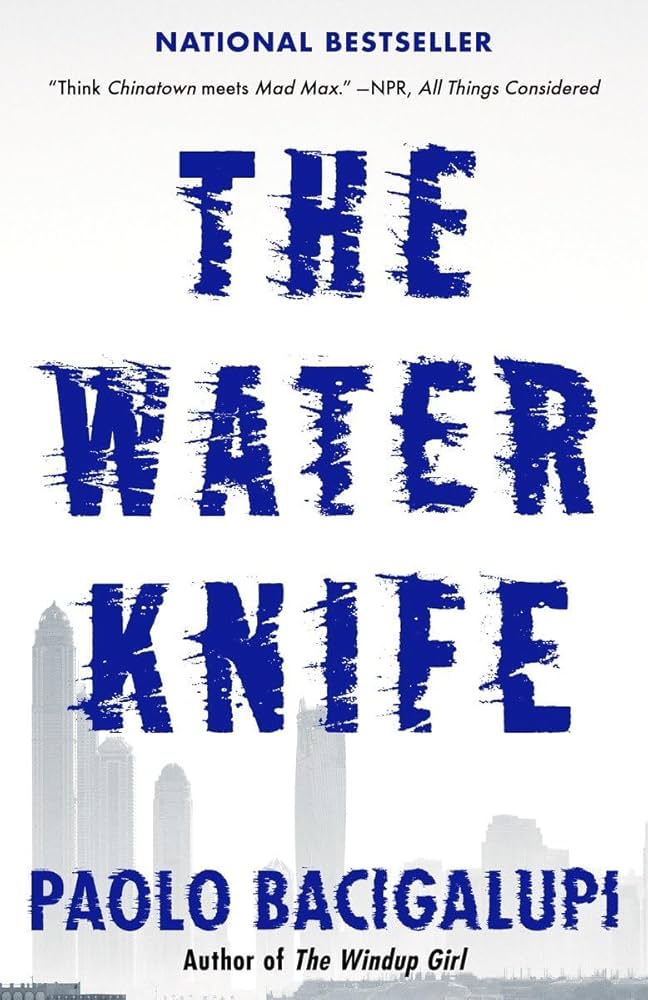
The Year of the Flood by Margaret Atwood
In Atwood’s not-so-green garden of Eden, gene-spliced animals roam free, and humanity is the endangered species.
“The Year of the Flood” weaves together the lives of two women surviving in a biotechnological apocalypse, complete with cults, corporate overlords, and carnivorous rabbits.
It’s part environmental manifesto and part survival thriller, with a sprig of dark humour to remind us that, in the face of the apocalypse, you either have to laugh or cry—and crying wastes water.
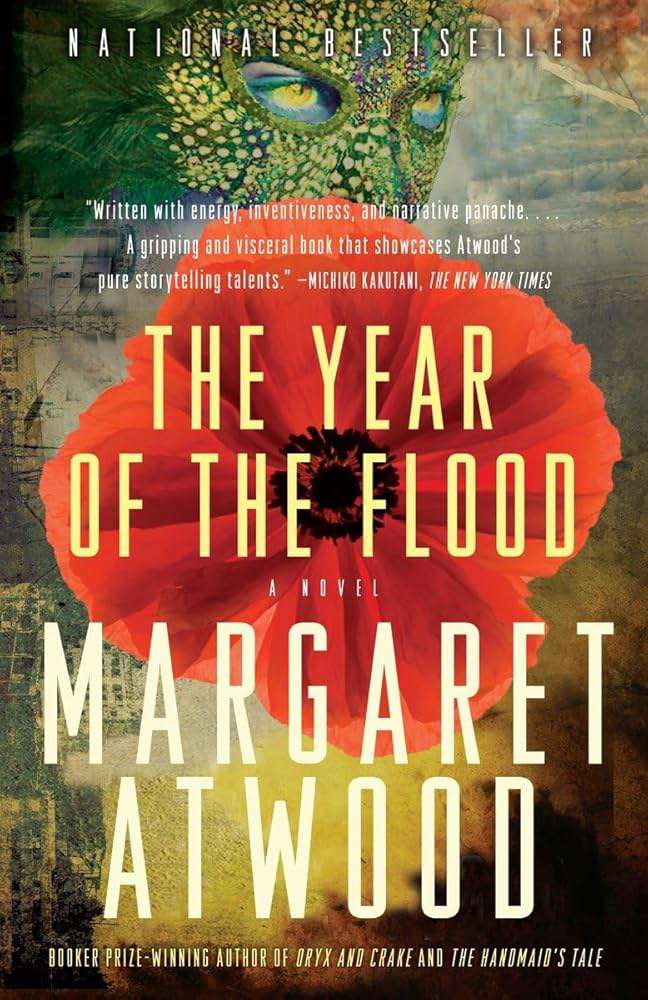
The Last Man by Mary Shelley
Mary Shelley, having already birthed the science fiction genre with “Frankenstein,” now explores humanity’s end in “The Last Man.” Set in the late 21st century, the novel unfolds in a desolate world. Our protagonist remains to write history’s last diary entry. As humanity coughs its way to oblivion, the narrative delves into themes of solitude and despair. Existential crises abound as we witness the final days of civilization. It offers a haunting view of the world’s end—spoiler alert: it’s not a sell-out crowd.
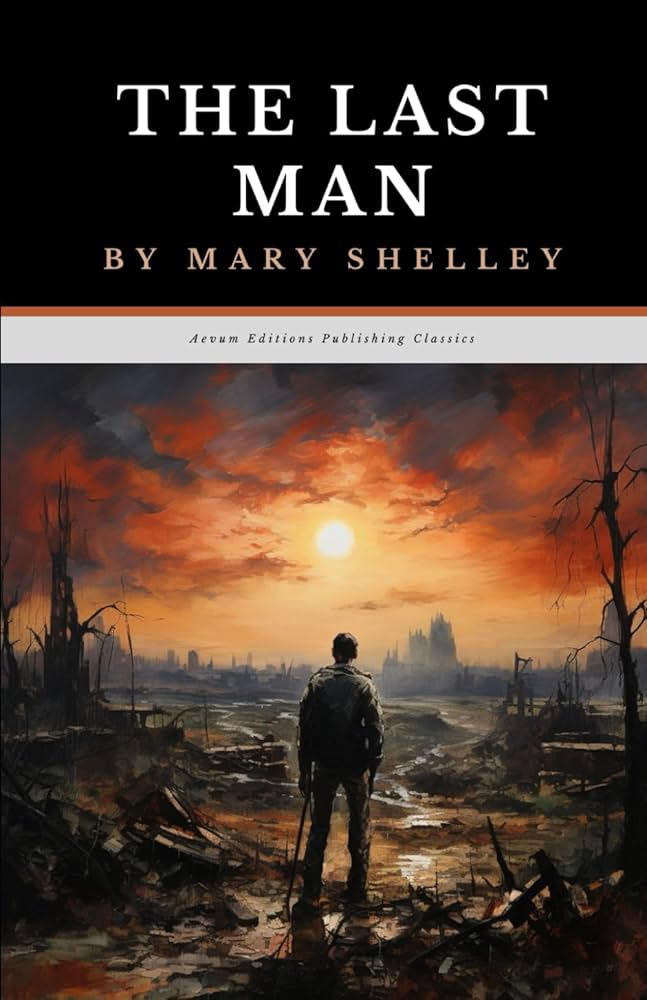
Oryx and Crake by Margaret Atwood
This novel is set in a future shaped by genetic engineering and corporate control, following the story of Snowman as he navigates a post-apocalyptic world. It dives into themes of bioengineering, the consequences of playing God, and the impact of consumer culture on humanity. Atwood’s speculative fiction presents a cautionary tale about the perils of unchecked scientific advancement.
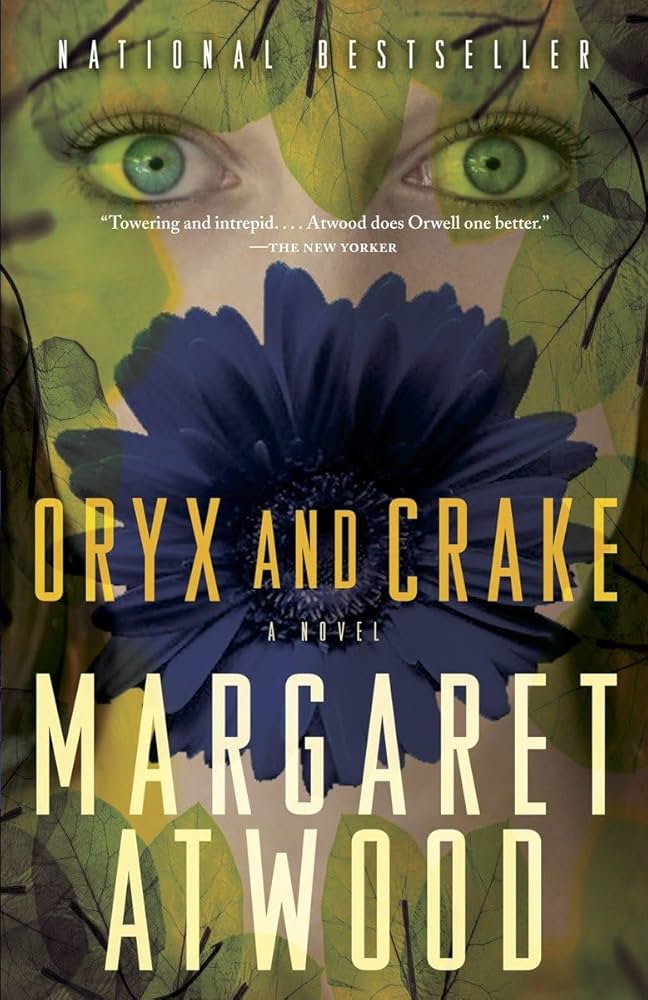
Z for Zachariah by Robert C. O’Brien
This novel centers on Ann Burden, a young girl who believes she may be the last human alive after a nuclear holocaust. Living in a secluded valley that appears untouched by radiation, her life changes when a stranger arrives. The story delves into themes of isolation, trust, and morality amidst survival.
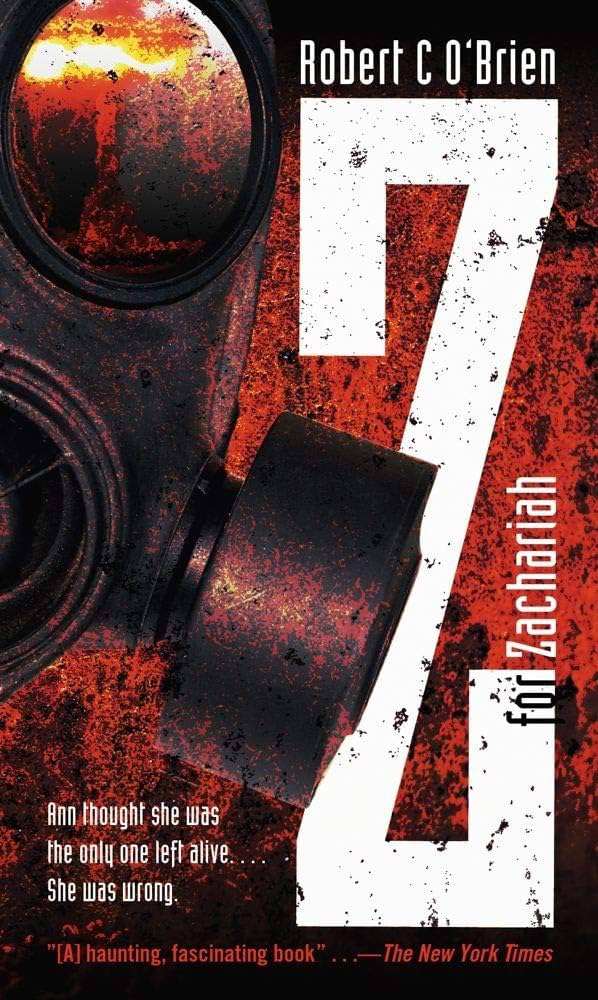
Alas, Babylon by Pat Frank
Written during the Cold War era, this novel portrays the aftermath of a nuclear war in a small Florida community. It follows the lives of the residents as they confront the challenges of a new world filled with scarcity, fear, and uncertainty. The book examines the fragility of civilization and the human spirit’s capacity for resilience.
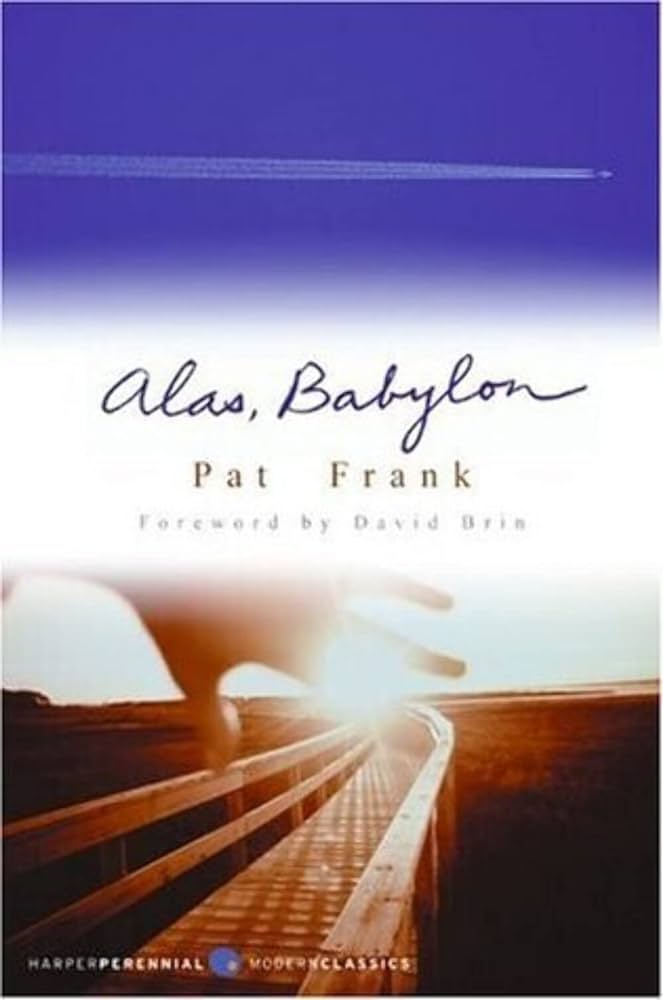
The Postman by David Brin
Imagine the post-apocalyptic world’s reliance on a hero, and you get… a postman.
David Brin’s “The Postman” revives the long-lost art of mail delivery in a future where the U.S. government has fewer members than a boy band.
Through the journey of a lone wanderer donning a postal uniform, the story delivers hope, stamped and sealed, to isolated communities.
In a world starved for communication, our postman hero proves that sometimes, all it takes to unite people is a bunch of old letters and an outdated job description.
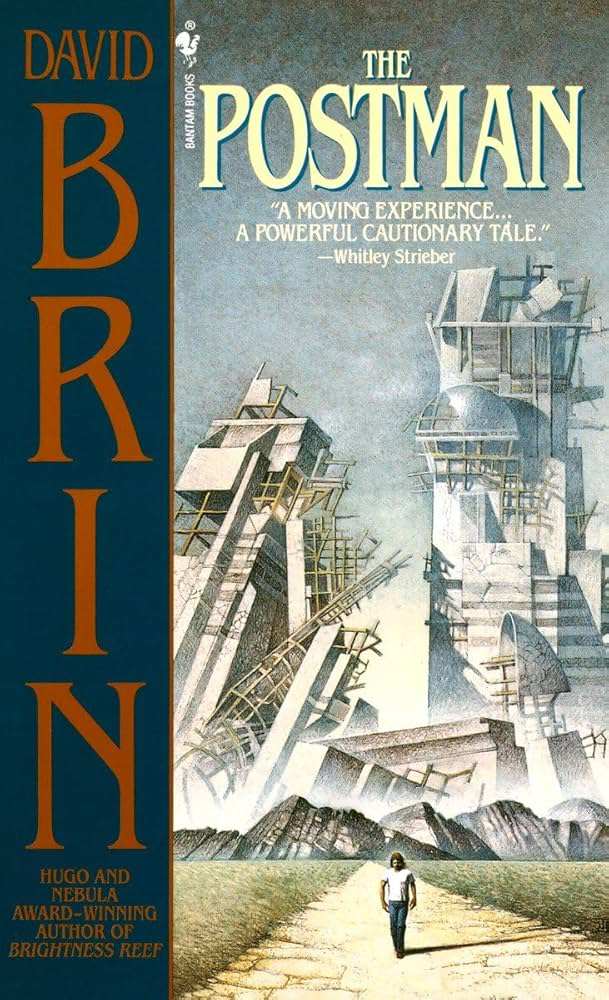
The Girl With All the Gifts by M.R. Carey
In a world ravaged by a fungal infection, society has collapsed, and humanity faces the threat of “Hungries,” zombie-like beings. The story follows Melanie, a young girl with extraordinary abilities, who is part of a military experiment. As she navigates her unique identity, the novel raises questions about morality, humanity, and survival.
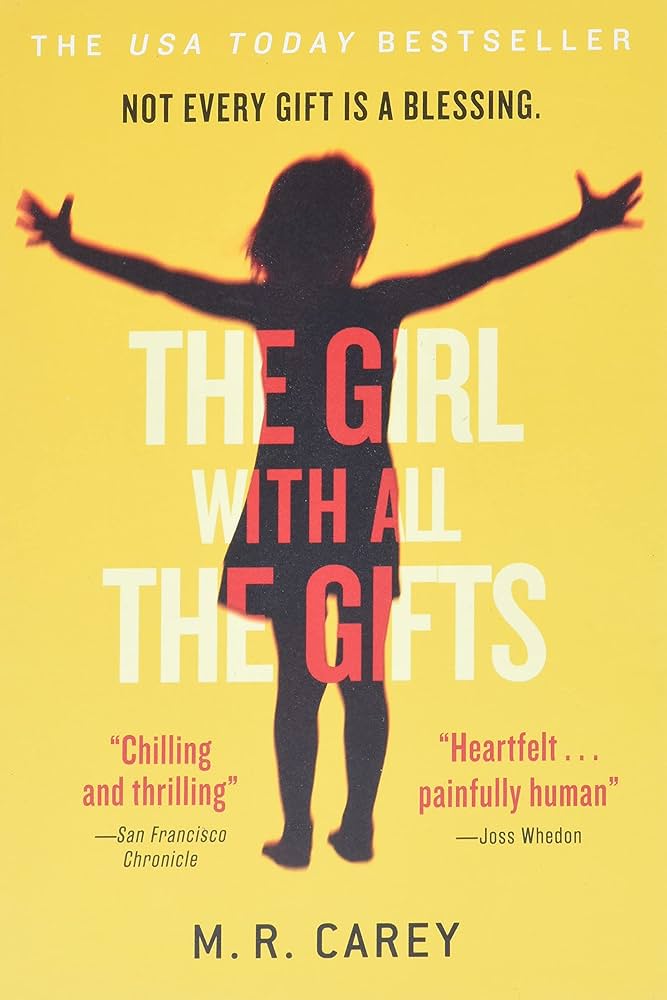
A Canticle for Leibowitz by Walter M. Miller Jr.
This Hugo Award-winning classic is set in a post-nuclear war future where civilization has crumbled. The story follows the monks of the Albertian Order of Leibowitz as they preserve human knowledge for future generations. The novel explores themes of faith, the cyclical nature of history, and humanity’s inclination toward self-destruction.
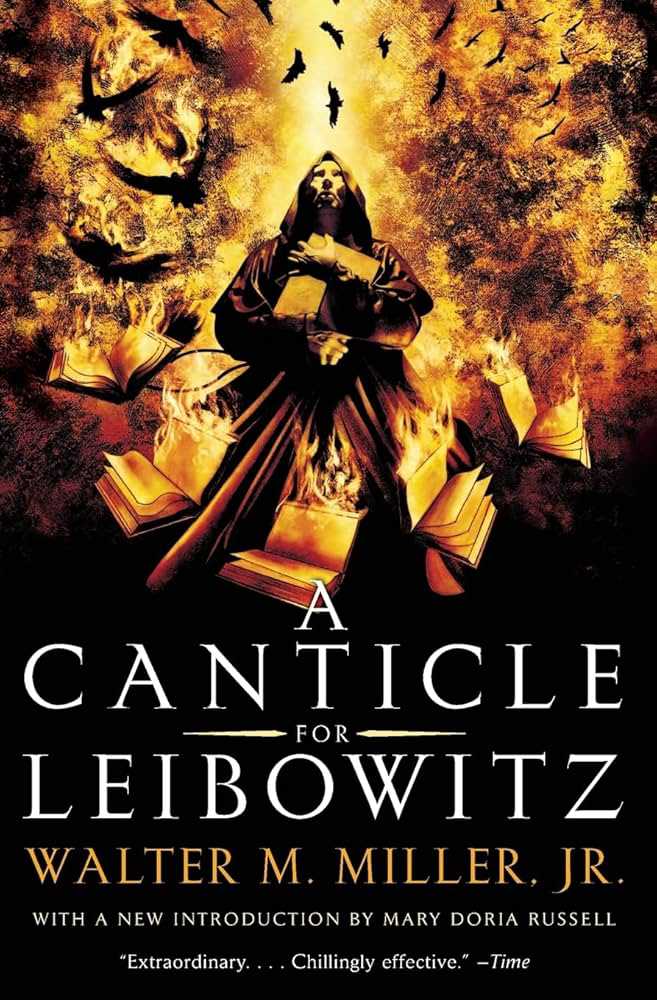
The Passage by Justin Cronin
This sprawling epic begins with a government experiment gone wrong, unleashing a virus that turns people into vampire-like creatures. The narrative unfolds across multiple timelines, focusing on the survivors in a world ravaged by the outbreak. It blends horror, science fiction, and survival, exploring themes of hope, resilience, and sacrifice.
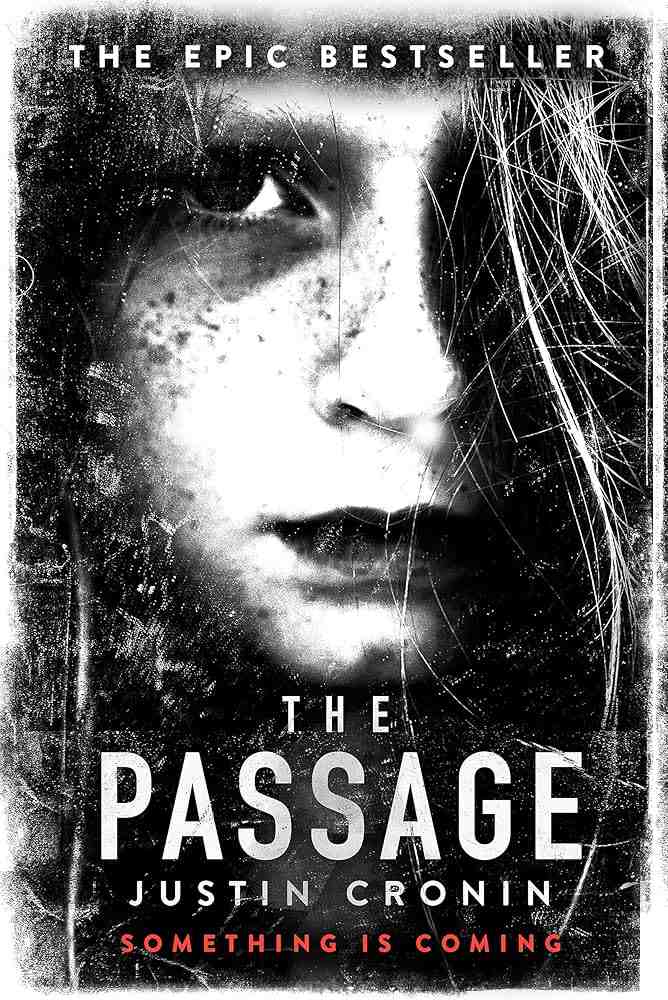
A Canticle for Leibowitz by Walter M. Miller Jr
In the aftermath of a nuclear apocalypse, where society has hit the ‘reset’ button all the way back to the Dark Ages, “A Canticle for Leibowitz” stitches together a narrative over centuries.
This tale marries monks with nuclear physics in a monastery dedicated to the preservation of scientific knowledge, led by the fictional patron saint of electricians, Saint Leibowitz.
Miller crafts a sardonic look at humanity’s penchant for self-destruction and history’s annoying habit of repeating itself, proving that no matter the era, people never really get tired of making the same mistakes.
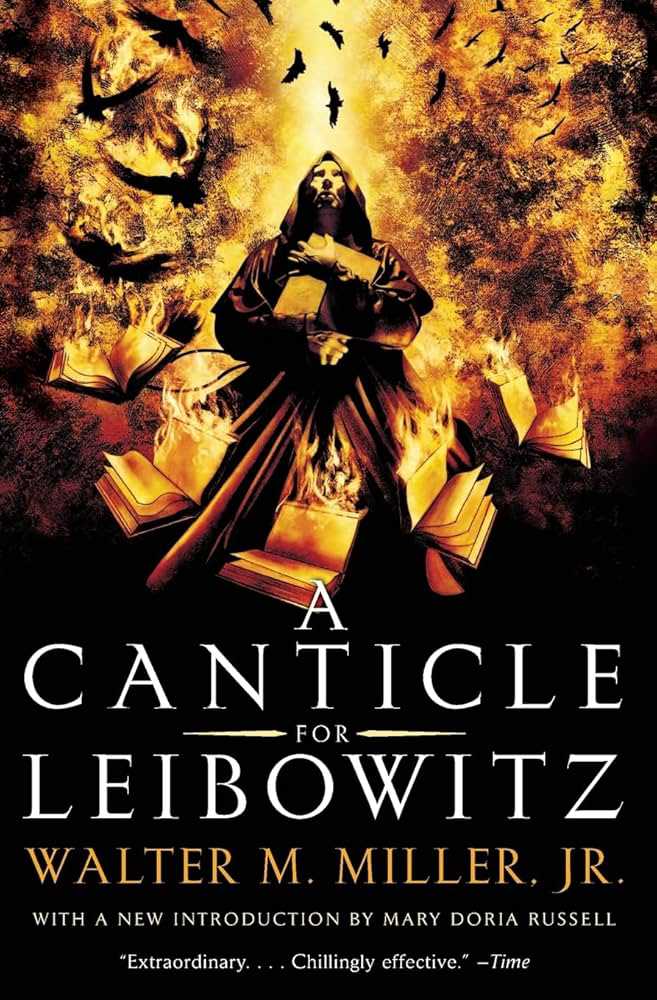
The Day of the Triffids by John Wyndham
Just when you thought it was safe to stop worrying about the robot uprising, John Wyndham brings you mobile, carnivorous plants.
In “The Day of the Triffids,” the world is blindsided quite literally — most of humanity loses their sight overnight, and to add insult to injury, they must now contend with sentient plants with a taste for human flesh.
This novel serves up a thrilling tale of survival, where the hierarchy of Earth’s species is questioned, and humans might not be at the top of the food chain anymore.
It’s a botanical nightmare that’ll make you reconsider keeping potted plants in your home.
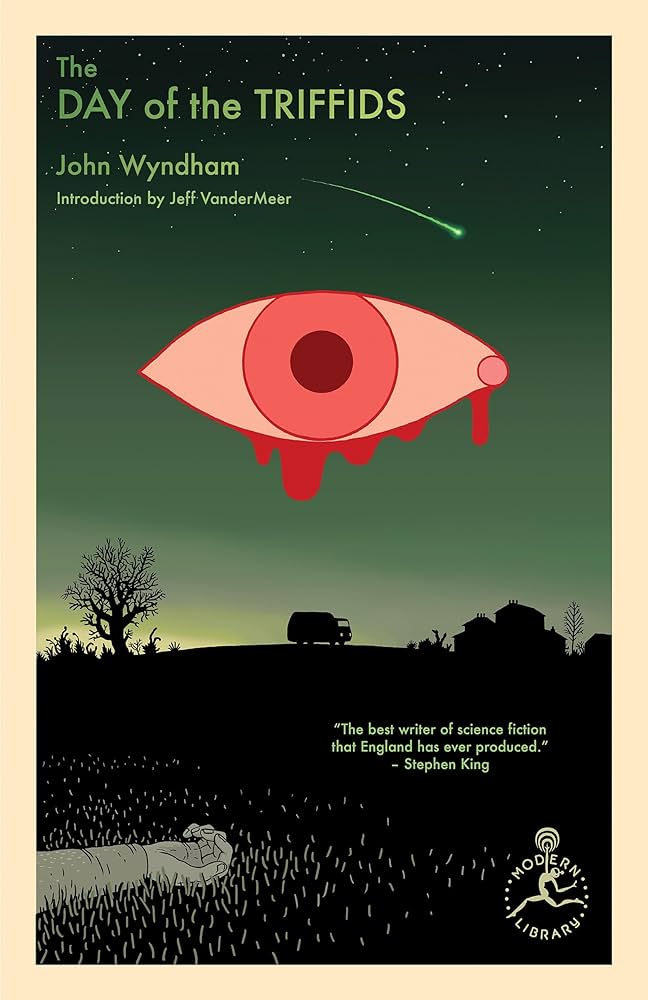
Swan Song by Robert McCammon
Following a nuclear war that turns America into a wasteland, “Swan Song” by Robert McCammon tells the epic saga of survivors who face not only the fallout but also the rise of supernatural forces.
As society crumbles, a young girl named Swan finds herself carrying the burden of possibly reviving hope for the world.
McCammon masterfully weaves a post-apocalyptic tapestry where the battle for good and evil gets murkier by the page, and every survivor’s tale is a heavy blend of horror, heroism, and a hint of magic.
In this grim new world, the quest for survival might just depend on a child who has the power to grow plants in a land where nature has been scorched away.
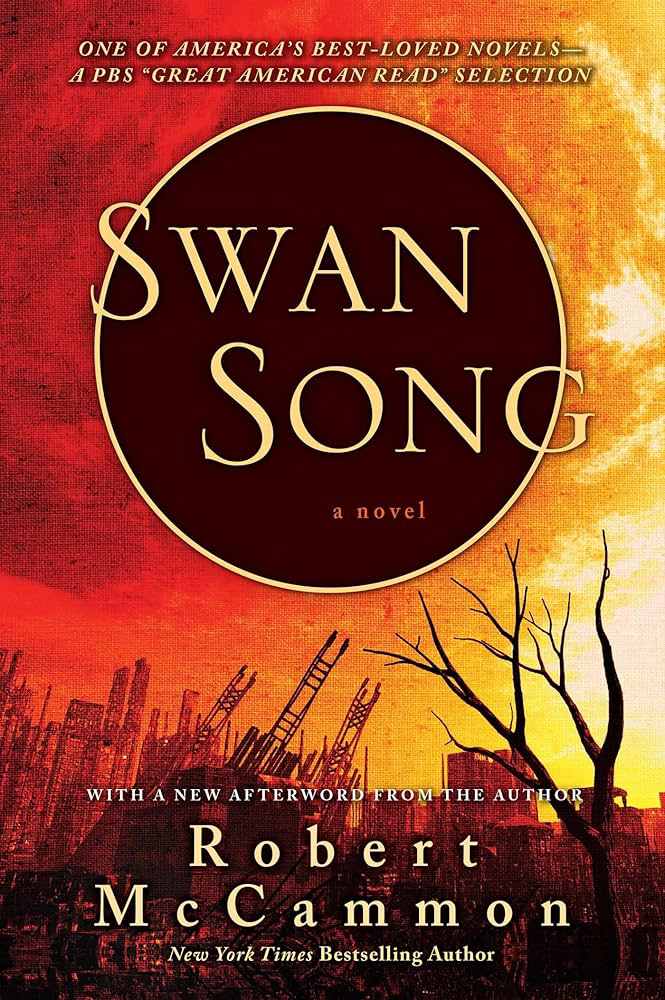
Noble: New World Order by David K. Hulegaard
In a future where the United States has fractured, a group of survivors comes together to navigate the challenges of a new world. The novel follows various characters, each with their own backgrounds and motivations, exploring themes of teamwork, trust, and the struggle to reclaim something meaningful in a broken society.
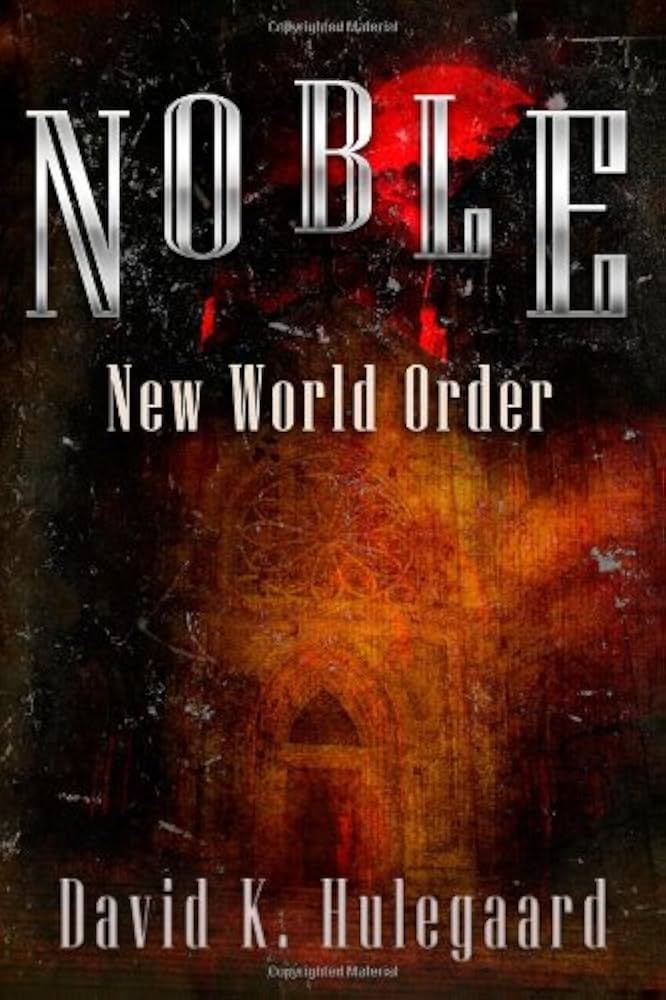
The Last Policeman by Ben H. Winters
Set in a world facing imminent disaster—a meteor on a collision course with Earth—the story follows a detective, Hank Palace, as he continues to solve crimes in the face of humanity’s looming extinction. This thought-provoking novel explores themes of purpose, duty, and what it means to maintain one’s integrity when the world is unraveling.
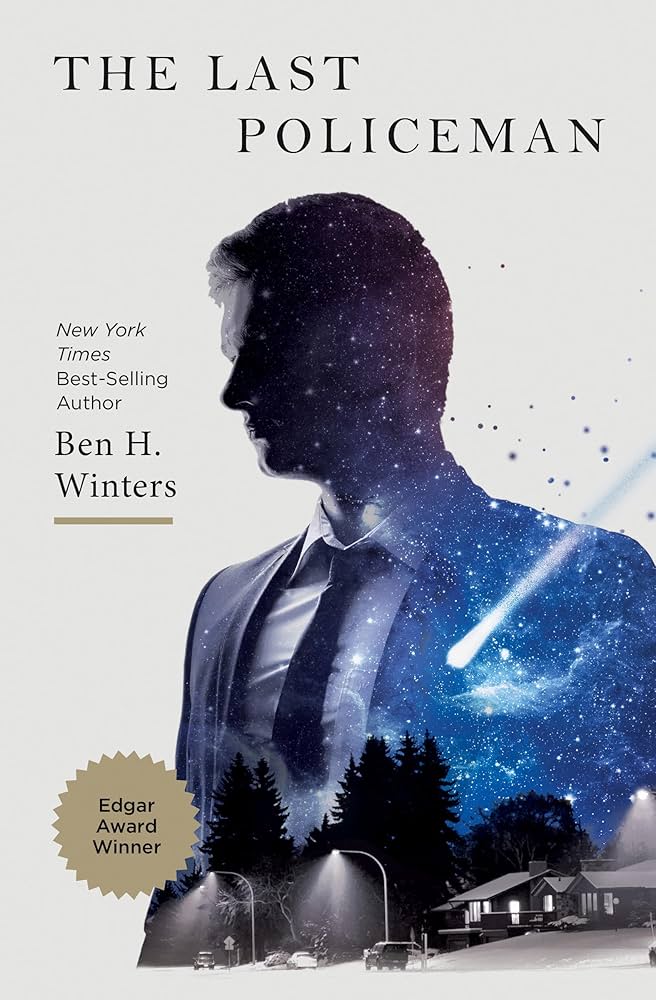
Parable of the Sower by Octavia Butler
In a near-future America where society has collapsed due to climate change and economic hardship, Lauren Olamina possesses hyper-empathy, feeling the pain and suffering of others. As she embarks on a journey to find safety and community, the novel presents a visionary exploration of hope and human transformation amid chaos.
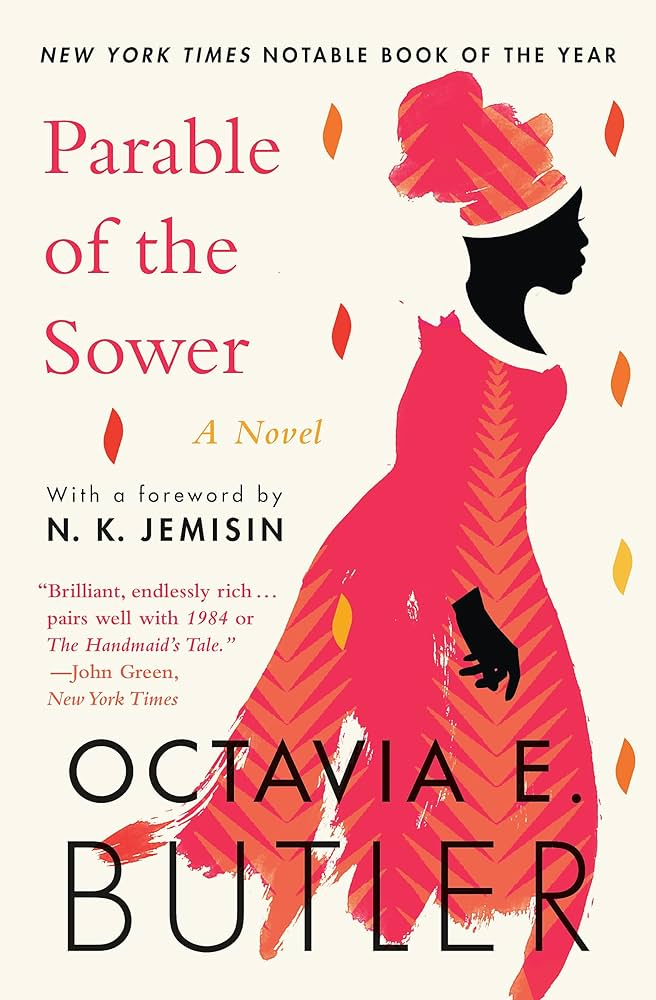
Zone One by Colson Whitehead
Set in a post-apocalyptic world ravaged by a zombie plague, the novel follows Mark Spitz as he helps clear the remains of New York City decades after the outbreak. It examines themes of trauma, resilience, and the absurdities of a post-zombie society, blending horror with profound social commentary.
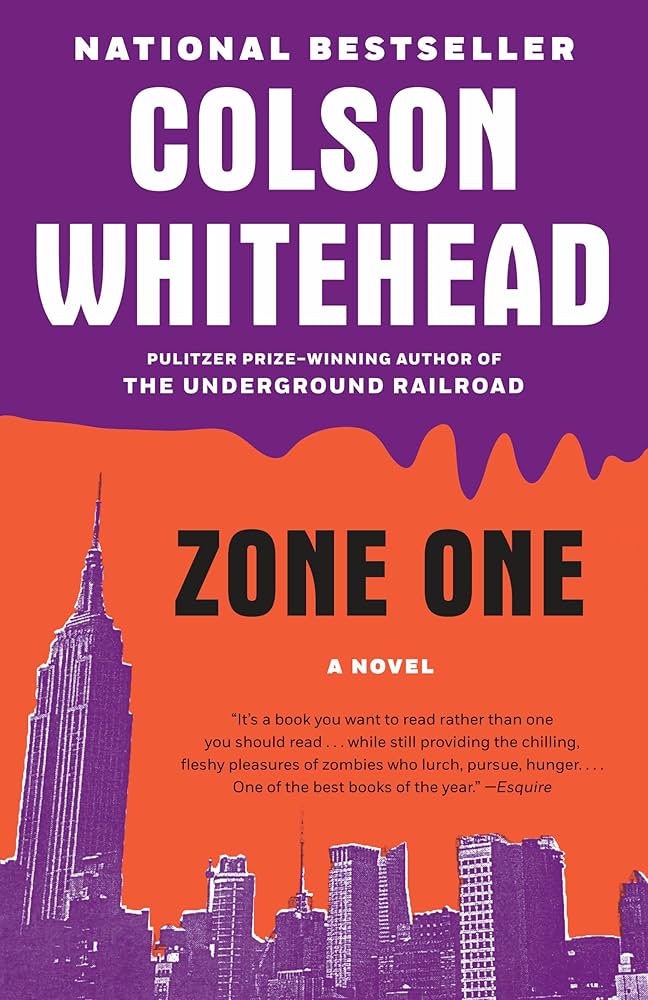
Conclusion
While our voyage through the ashes of civilizations may not be the most upbeat adventure you’ll ever take, these best post-apocalyptic books provide significant insights into human nature. They tell us that even at the end of the world, new beginnings are possible. So, whether you’re interested in the frightening echoes of quiet cities, the thrill of dystopian survival, or simply a peep into what might happen after the apocalypse, there’s a book here to satiate your morbid curiosity.
Arvin is here to help you find the best titles tailored to your tastes. Whether you prefer dystopian tales brimming with action, character-driven dramas, or speculative stories that challenge your perspective, Arvin can provide personalized recommendations. Don’t hesitate to ask! What themes or specific titles are you interested in exploring further? Let’s embark on this literary journey together!
FAQs
Post-apocalyptic stories usually focus on survival, showing how the characters adapt to the new world and struggle to rebuild. Dystopian stories focus on characters struggling against an oppressive government or regime, in order to regain their freedom.
Most post-apocalyptic stories fall under the genre of science fiction, though they are distinct from other kinds of science fiction stories including dystopian fiction and religious apocalyptic stories.
Apocalyptic and post-apocalyptic stories tend to follow characters trying to survive a devastated landscape. If the disaster or catastrophe occurs during the course of the story, then the novel is termed apocalyptic. If the event has already happened, it is post-apocalyptic.
Apocalyptic and post-apocalyptic fiction are subgenres of science fiction that are set in a time period where the earth as we know it is coming to an end.

